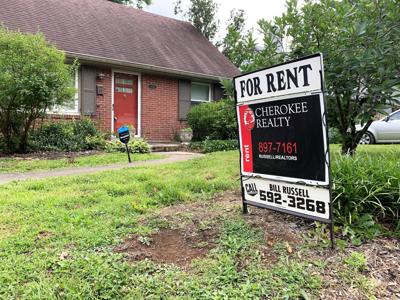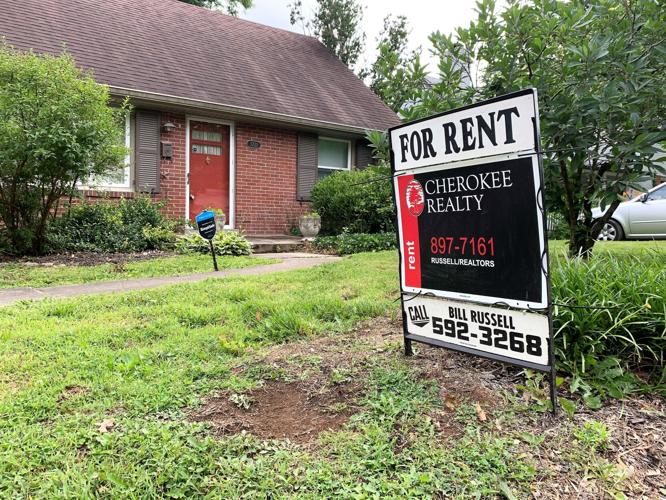FRANKFORT, Ky. (WDRB) -- Kentucky Republicans are pushing legislation that would ensure landlords are not forced by local governments to rent to tenants who receive "Section 8" federal government housing vouchers.
Supporters of a bill that advanced Wednesday said it ensures cities and counties can't force landlords to accept less rent or to fix up their units to comply with the government program, but Democrats and housing advocates said the legislation would exacerbate an acute shortage of housing for low-income people.
In 2020, Louisville's Democrat-led Metro Council unanimously adopted an ordinance adding "lawful source of income" to a list of categories — such as race and disability status — that landlords cannot discriminate against when selecting tenants.
Now, Lexington's city-county government is considering a similar measure, which prompted Republicans in the statehouse to step in, Senate Majority Floor Leader Damon Thayer told WDRB News.
"One of the very basic rights and tenets of our freedoms in the United States is the right to private property," said Thayer, who voted with other GOP members to advance Senate Bill 25 on Wednesday. "Now, I'm not opposed to the Section 8 voluntary program, and landlords are welcome to take that on a voluntary basis. It's when government starts forcing that on people, that I feel like we need to intervene."
Sen. Stephen West, a real estate attorney from Paris, Kentucky, and the sponsor of SB 25, said the legislation wouldn't necessarily invalidate Louisville's ordinance. That was disputed by Sen. Cassie Chambers Armstrong, a Democrat from Louisville who provided the lone "no" vote to the measure.
"If Section 8 is voluntary — which it currently is — and it remains voluntary, then there will not be a problem. If Louisville or Lexington ... want to force a property owner to accept the Section 8 program, then that's where you will have a conflict," West said during Wednesday's meeting of the legislature's state and local government committee.
West said he wants to prevent local governments from forcing landlords to comply with rent limits or property maintenance standards imposed by Section 8. To do so would violate private property rights, he said.
Louisville Mayor Craig Greenberg, a Democrat, said in a statement that SB 25 and a similar measure in the House of Representatives, House Bill 18, would "block recently enacted protections to prevent discrimination in housing and would make it even harder for many Louisville families to put a roof over their heads."
Supporters of the Louisville ordinance said it prevents landlords from making a blanket determination that they don't accept Section 8 vouchers, but doesn't force them to rent to every Section 8 tenant.
"It does not require a landlord to select a particular tenant. It does not require a landlord to cap rent. It does not prohibit them from charging market rate. It does not prohibit them from requiring a security deposit," said Chambers Armstrong, also an attorney, during the hearing. "It simply prohibits discrimination on source of income. So you can choose among otherwise qualified tenants, but you cannot discriminate against someone solely because of the source of the money that they're using to pay for their housing."
Based on that description, West said his bill wouldn't affect the Louisville ordinance, which Chambers Armstrong later disputed.
Before the Metro Council added to Louisville's fair housing ordinance, "There were listings where people would say 'No Section 8 accepted.' People weren't even eligible to apply for those apartments," she said. "And we have people sleeping on the streets and not enough affordable places for them to live."
Chambers Armstrong added that the Louisville ordinance hasn't been a source of controversy since it took effect three years ago.
The Louisville Metro Human Relations Commission, which investigates fair housing complaints in Jefferson County, did not immediately respond to a public records request seeking details about complaints filed since the ordinance took effect in December 2020.
West said during the hearing that lawmakers recognize "we do have a housing crisis" in Kentucky.
He said the reasons for the crisis, however, are excessive federal borrowing fueling inflation and overly restrictive planning and zoning laws at the local level.














